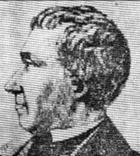
Francisco Amorós and Ondeano (Valencia 1770 - Paris 1848), Spanish pedagogue and military, is internationally known for being one of the founders of modern Physical Education. Francisco Amorós and Ondeano are due, for example, to the first determined and systematic steps to introduce physical education in the primary school program. The amorosiana gymnastics, has been practiced until a few decades ago in school, in the institute, in the army. It is that method in which appliances are used, trapeze, fixed bar, parallel, rings, trampoline, etc. It could be said that the gymnastics of Amorós is registered, in France, within the framework of the German influence and that they conclude with the beginnings of the Swedish and English influence. It is imported into France by a "Frenchified" Spaniard. Francisco Amorós served as an officer in the Universal Dispatch of War during the reign of Carlos IV. He was director of the Real Pestalozziano Military Institute of Madrid. As a reward for his services, he was promoted by the King to Colonel of Infantry, being also appointed Minister of the Council of the Indies. After the French invasion Amorós was named military and political governor of Santander by King José I (November 20, 1808); He was also appointed intendant of the province of Cantabria, military commander and politician of his coast, and state councilor (November 25). As governor of Cantabria he devised the publication of La Gazeta de Santander to publicize the new regime. In 1809 he created the Cantabrian National Guard, in charge of patrolling the municipalities and fighting against the guerrillas, in response to the decrees of Napoleón (December 15, 1808) and José I (December 29). On February 9, 1809 he was appointed regio commissar in the Basque Provinces, being claimed in the Court in March 1809 in his capacity as State Councilor.





